A Critical Conversation with Moten and Glissant: Featured in Boulevard Writing Magaizine
While Boulevard Literary Magazine isn't the first (nor the last) publication I have the pleasure of being featured in, this particular essay fills me with more pride than I have with my other work. I find this pride for quite a few reasons:
1. This is the first time I have ever been paid, and paid graciously, for my writing!
Now, we all know that money is not the mark of a strong artist, but it has inspired and cemented to me that not only is writing reminds me of what it means to be human, but I am really rather good at it. I want to make a career out of it, and I will. I have been trying to take turns from some of my favorite authors, of how they came into their prestige. Octavia Butler has journals full of color, of manifestations, of wishes and wilt and everything she felt. I attempt to do the same in my own way. I believe in the power of hard work, and of putting energy out into the universe that will come back to you.
2. This essay was unbelievably challenging for me to write.
Sometimes, words seem to sear through my blood and demand entry onto a page. Sometimes, its a complete outpour of emotions, and are worthy on their first draft. This, though, took a lot of sitting in silence, a lot of advice and harsh critique, and a lot of accepting there's things I can not do, and working within those bounds.
I wrote A Critical Conversation with Moten and Glissant my junior year at Bennington College. I would never describe myself as a poet though some have tried giving me that title, and such was certainly true a few years ago at this point in my academic career, I decided to spread my wings a bit and took my chance on a class called The Right to Opacity under the brilliant poet and artist Anaïs Duplan,
In this class we delved into the French philosophers Fred Moten and Édouard Glissant, and read their oeuvres, and it became quickly apparent that both philosophers held tight to the belief that things do not need to be written plainly to be understood, and that finding understanding with their audience is not their intention. Because, at the end of the day, both of these authors are intentionally opaque, and we as a reader do not need to understand. This contradicts much of what I believe personally; my intentions of studying had, and have, always laid deeply in the belief that words hold power, and the intention behind those words will shape and influence the audience. The audience must leave with understanding, and that understanding is influenced by who is reading it, and who is writing it.
So, coming face to face with writers who not only held the exact opposite belief of me, but wrote about this belief in such an absurd way, I was left with a mess of words that I didn't and was not allowed to understand, and had to write a collection of poetry grappling over the course of the term with their words.
Of course, this collection of poetry will turn into A Critical Conversation with Moten and Glissant, but at first, it was a 300 word sample piece for a 45 minute writing critique. And, lemme say, it was the worst writing critique of my life.
I remember this critique vividly for three simple reasons:
1. I had written the sample for this critique in 40 minutes before the class.
2. No one had anything good to say at all.
3. As I was leaving the class, Anaïs patted me on the shoulder, and said ❛At least you're wearing really cool glasses.❜
While they were right—I was wearing really cool glasses—I remember feeling shame for my work, a feeling that I had yet to experience so deeply.
It was the first time in my academics that I had presented work that no one liked, and it was harshly proven to me during that first two weeks that this class, these authors, and my writing were out of my element, and I would have to lock in. And lock in I did.
Sometimes, locking in means looking in, looking out, and looking around. To understand these authors, and what they were saying, I had to understand the people around me. As a story teller, I decided I would need figure heads to help me and my readers understand these works I was unpacking. I settled on Hansel and Gretel for my essays because at the same time, Bennington College put on a very fascinating play called H&G, following not quite a grim, not quite a fairy tale, retelling of Hansel and Gretel. I remember no one really liking it, and I was left wondering why. How did this fail, and how could I succeed?
I wrote of families because mine is so messed up. I wrote about women because I am a woman, and I feel the stories of other women. I wrote about nature because the world is dying. I wrote about death because we will all once die, and for some reason, most people find this fact absolutely petrifying.
I wrote this essay to grapple with what it means to die. To me, to Glissant and Moten, and to my pride. In killing my pride I have created a piece that was deemed worthy of publication by a reputable firm.
To An, thank you for supporting my insanity, even though I could tell you didn't always understand it.
To Boulevard Literary Company, I am so thankful for the chance to have my work published. To all those reading, if my hook fascinates you, please do purchase a copy of Volume 39 of Boulevard to read it. Lets get in contact, and tackle these conversations together.
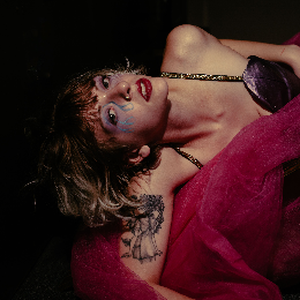
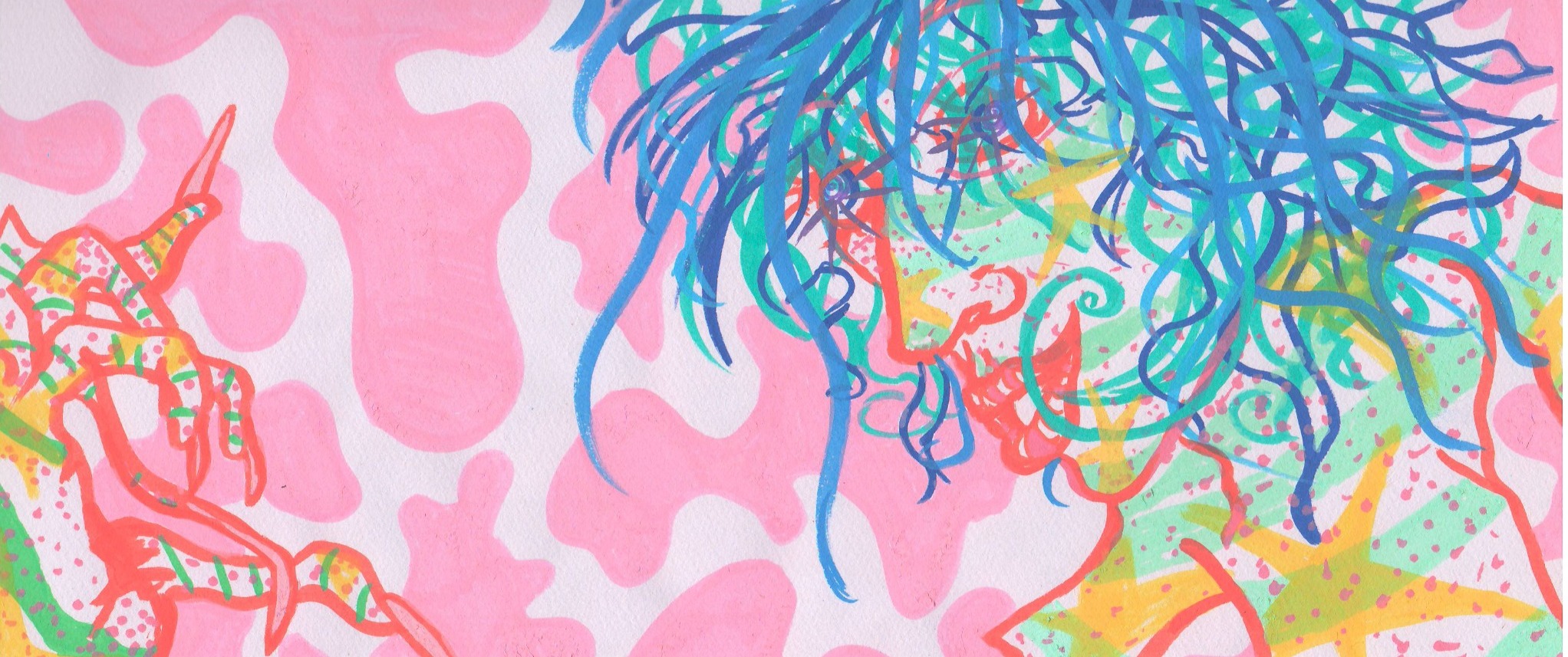
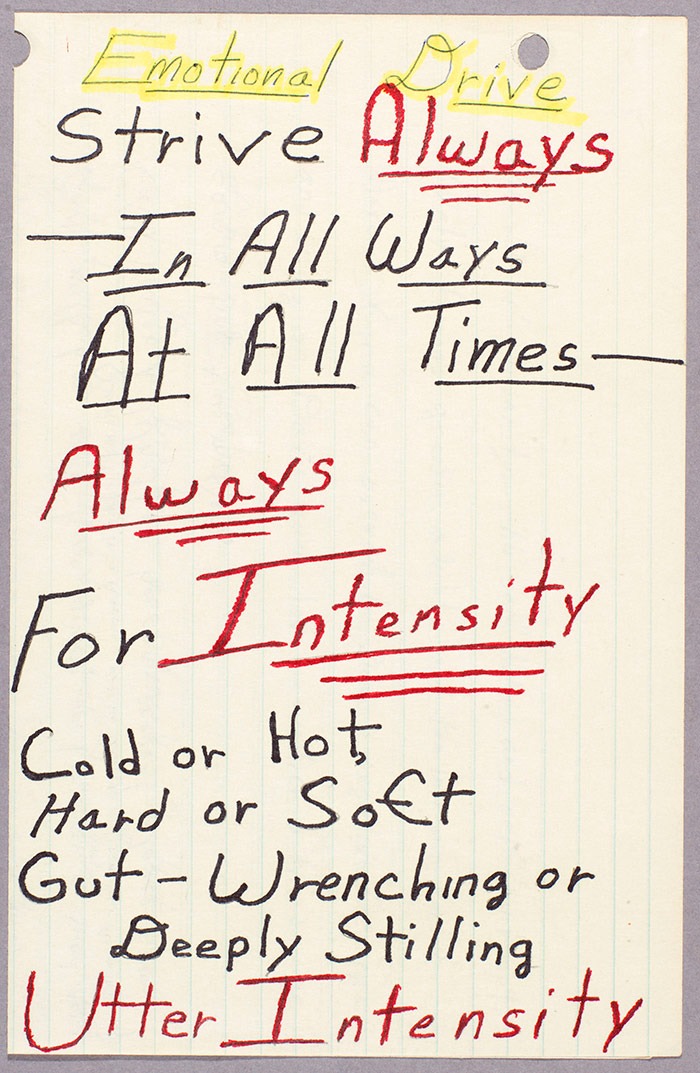
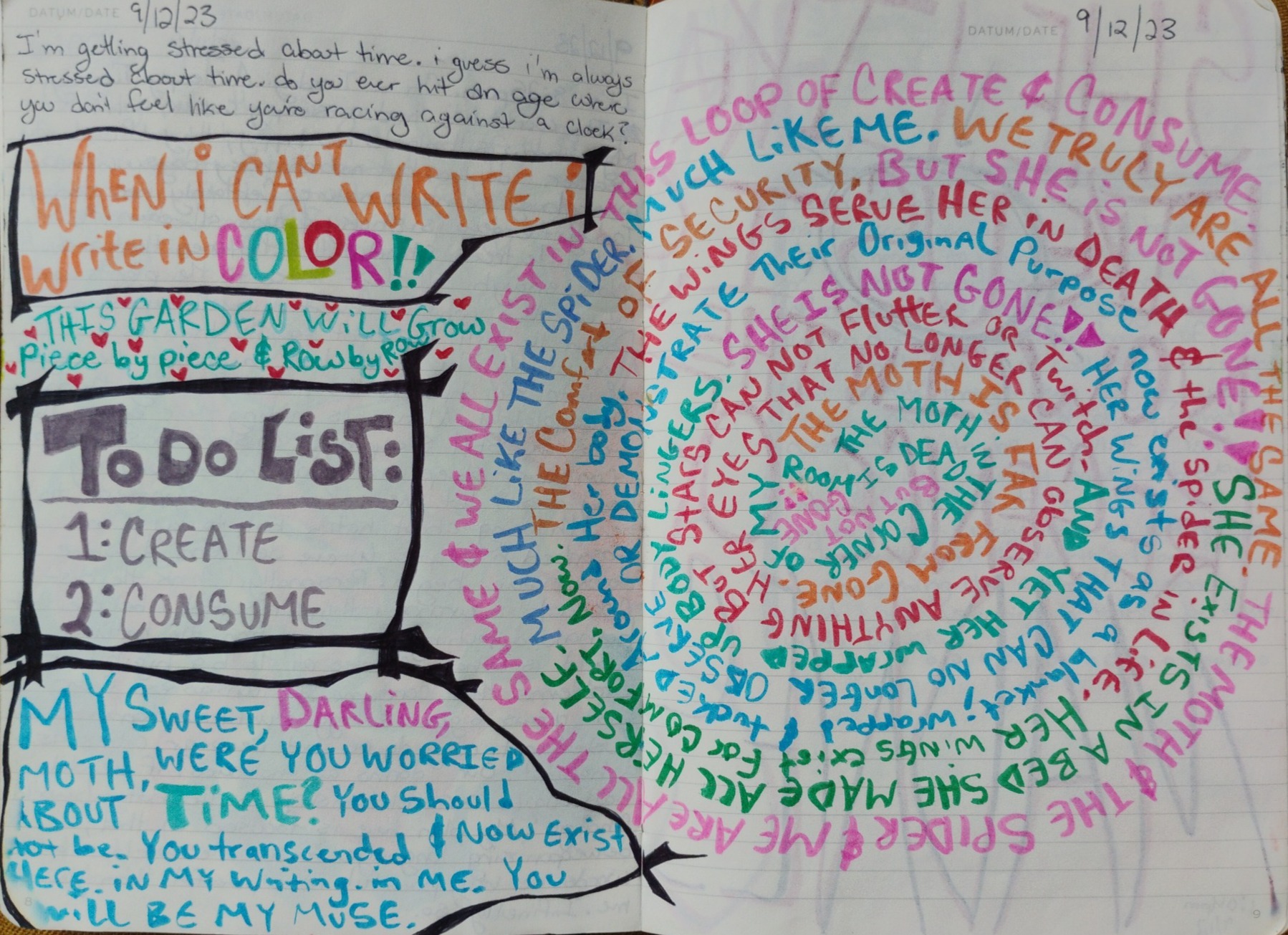
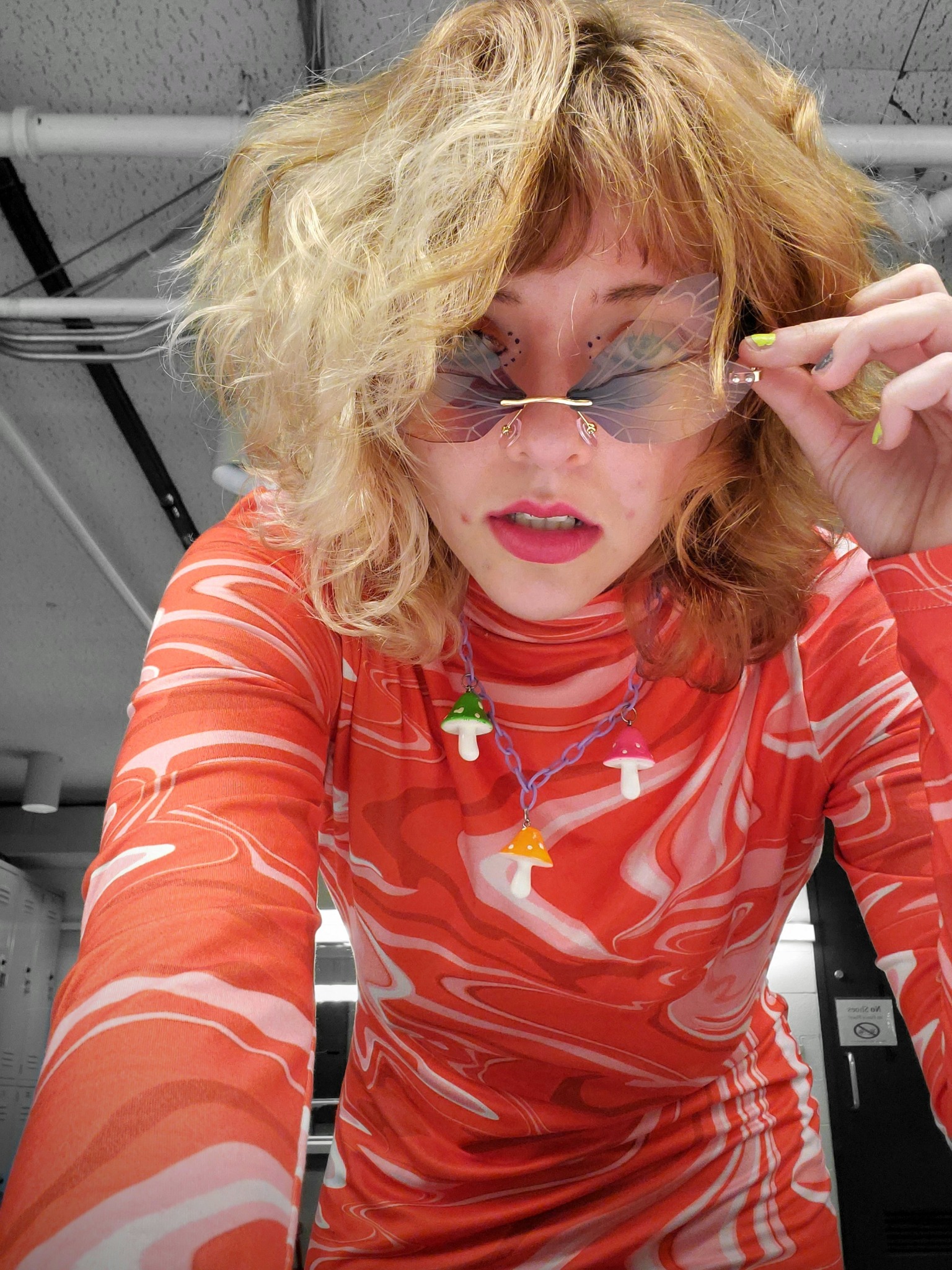
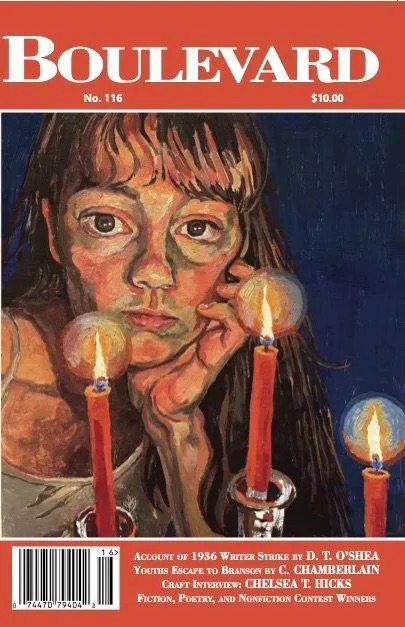
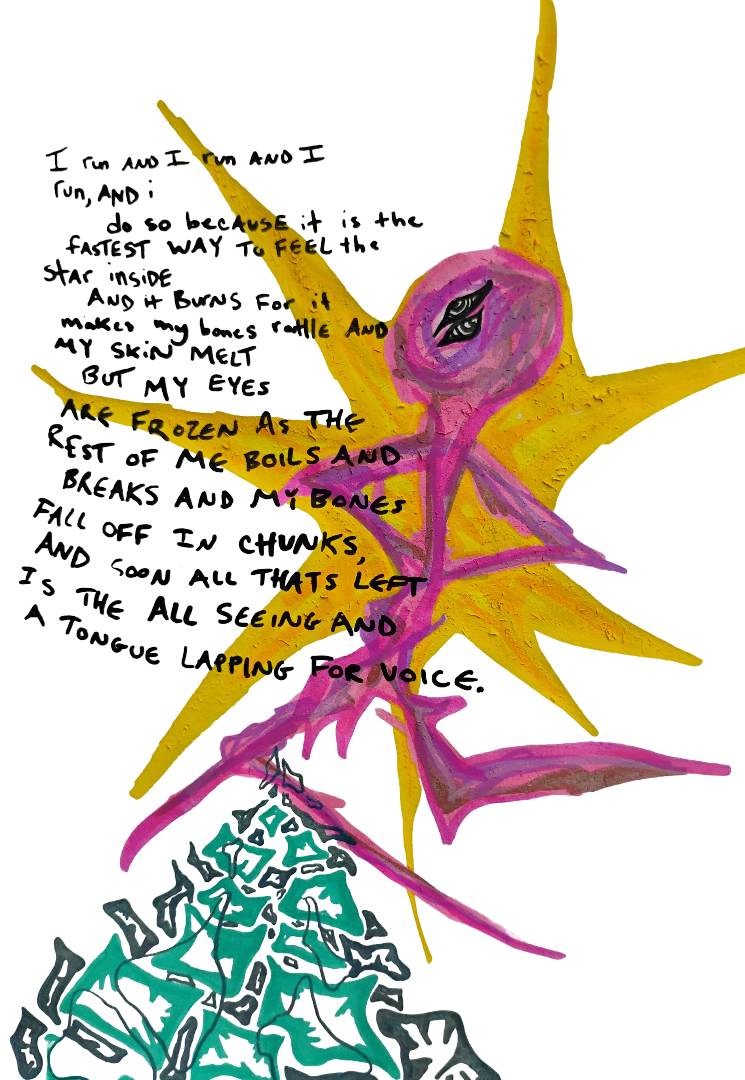
0 Comments Add a Comment?